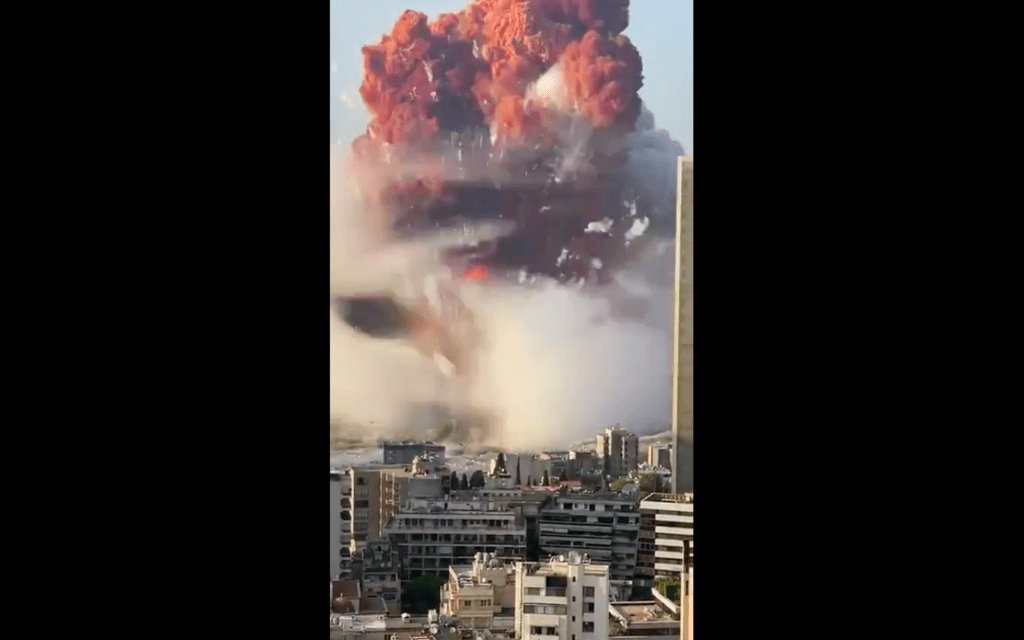One Belgian national is among the 100 confirmed deaths after massive blasts rocked Beirut on Tuesday, with the death toll expected to rise as the Lebanese capital works through the rubble and devastation.
The Foreign Affairs Ministry confirmed that a Belgian national, so far unidentified, was killed after two explosions ripped through a warehouse in the city's port, the Belga news agency reports.
Lebanese officials say that the blasts took place inside a port building that housed 2,750 tons of highly explosive ammonium nitrate, with their origins still unclear on Wednesday.
A first, smaller explosion gave way to a second, massive one, which was captured from different angles in footage that flooded social media channels on Tuesday evening.
At least 100 people were killed in or after the blasts and at least 4,000 were injured, the Lebanese Red Cross said on Wednesday, with figures expected to swell as emergency workers continue to look for survivors.
Beirut Governor Marwan Abboud called the events a "national catastrophe," breaking into tears as he took in the devastation from the blasts.
Scores of surrounding buildings collapsed or were severely damaged as a result of the explosions, the shock of which ripped through the surrounding blocks, upturning vehicles and sending debris through the air.
Belgian Foreign Affairs Minister Philippe Goffin said that the explosions had damaged the nearby Belgian Embassy building and that two embassy employees and two of their family members had been injured by shattered glass.
The blasts come days after a court prepared to deliver a verdict on the trial of four members of the armed Hezbollah group suspected of carrying out a 2005 bomb attack in the same port area which killed 21 people, including Former Lebanese Prime Minister Rafik al-Hariri.
A fire had started inside the warehouse where the two blasts occurred seconds from each other at around 6:00 PM on Tuesday.
Lebanese Prime Minister Hassan Diab said that those responsible for the blasts would be held accountable and given "the most serious punishment."
The head of Lebanon's general security service said that the warehouse where the explosions occurred were being used to store highly explosive material seized by the government years ago but warned against "getting ahead of the investigation" and speculating on the origins of the deadly blasts.
Gabriela Galindo
The Brussels Times

